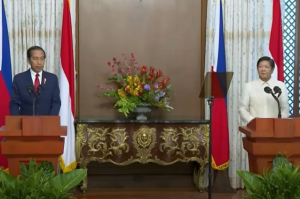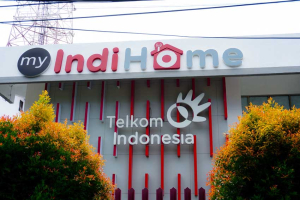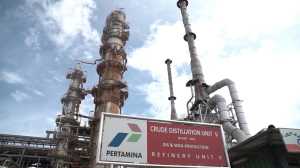Indonesian state-owned enterprises to embrace active engagement in ASEAN across key sectors
Published on 01/09/2023 at 12:48 GMT+7 Reading time
Erick Thohir, The Minister of State-Owned Enterprises (BUMN), has called upon Indonesian state-owned enterprises to take proactive steps in identifying and leveraging opportunities, especially within the Southeast Asian region (ASEAN).
He emphasized that the transformation of these enterprises has rendered them better equipped for international competition.
"This transformation has yielded concrete progress in our state-owned enterprises. They have become more resilient, productive, and ready to compete on the global stage," stated Erick on August 31, 2023.
In the ASEAN region, Erick highlighted that BUMN is currently engaged in several collaborative projects with neighboring countries. Singapore stands out as an ASEAN nation with extensive partnerships with Indonesia.
BUMN's reach outside Indonesia
A notable instance is Singtel, a Singaporean telecommunications company, contributing to the integration of IndiHome into Telkomsel. This collaboration has positively impacted digital inclusion by offering broader and more equitable connectivity across Indonesian communities.
This initiative is aligned with Telkom's roadmap to become a frontrunner in the business-to-business (B2B) market, focusing on providing digital services to corporate and institutional sectors.
Meanwhile, Telkomsel will focus on business-to-customer (B2C) ventures. Following this integration, Telkom's effective ownership in Telkomsel has increased to 69.9%, with Singtel holding the remaining 30.1%.
The partnership between Indonesia and Singapore, through Singtel, extends to the development of a data center in Batam. This aligns with projections indicating a substantial surge in data center demand in Batam over the next decade (2022-2031).
This venture, targeting an IT Load capacity of 51 MW by 2031, is a collaboration involving Telkom's subsidiary NeutraDC, Singtel, and Medco Power.
"This project is expected to attract companies that previously stored their data in Singapore to relocate to Batam, Indonesia," said Erick.
Furthermore, Indonesia is exploring potential collaborations with Singapore in the tourism sector, particularly in cruise ships and port facilities, involving PT Pelindo.
This aims to boost cruise ship tourism to various Indonesian destinations and explore opportunities for developing and operating marinas, such as in Benoa.
"In addition to Telkom and Pelindo, several other BUMNs are actively engaged in business activities and partnerships in Singapore, including BNI, BTN, and Pertamina," Erick Thohir affirmed.
Turning to renewable energy, Indonesia and Singapore signed a Bilateral MoU on March 16, 2023, and are further exploring collaboration in the development of renewable energy manufacturing industries in Indonesia, including solar panels and Battery Energy Storage Systems (BESS) to supply renewable energy to Indonesia.
Erick also mentioned that BUMNs have forged partnerships in Malaysia. In efforts to meet national energy needs and secure oil and gas supplies on the upstream side, PT Pertamina Hulu Energi (PHE) signed an agreement with Shell to acquire a 35% participating interest (PI) in the Masela Block.
Throughout this acquisition process, PHE collaborated with Petronas through Petronas Masela Sdn Bhd (Petronas Masela). Of the transferred 35% PI, PHE will hold a 20% stake, while Petronas Masela will own 15%.
Meanwhile, in the Philippines, Adhi Karya, in collaboration with PT PP (Persero) Tbk, is working on the US$ 531 million North-South Commuter Railway project in partnership with the Department of Transportation.
Erick encourages BUMN to enter other sectors
Erick added that these collaborations demonstrate the confidence and trust of both local and global partners. This is a testament to improved corporate governance, innovation, and strengthened financial management.
Encouraging BUMNs to expand across strategic sectors – from energy and mining to agriculture, telecommunications, transportation, and finance – Erick emphasized that BUMNs are pivotal players in both Indonesia's economy and development.
"The active role of BUMNs in the ASEAN-Indo Pacific region is expected to bring positive impacts to the national economy and concretely embody business collaborations among member countries," explained Erick.
Tag
Already have an account? Sign In
-
Start reading
Freemium
-
Monthly Subscription
30% OFF$26.03
$37.19/MonthCancel anytime
This offer is open to all new subscribers!
Subscribe now -
Yearly Subscription
33% OFF$228.13
$340.5/YearCancel anytime
This offer is open to all new subscribers!
Subscribe now






